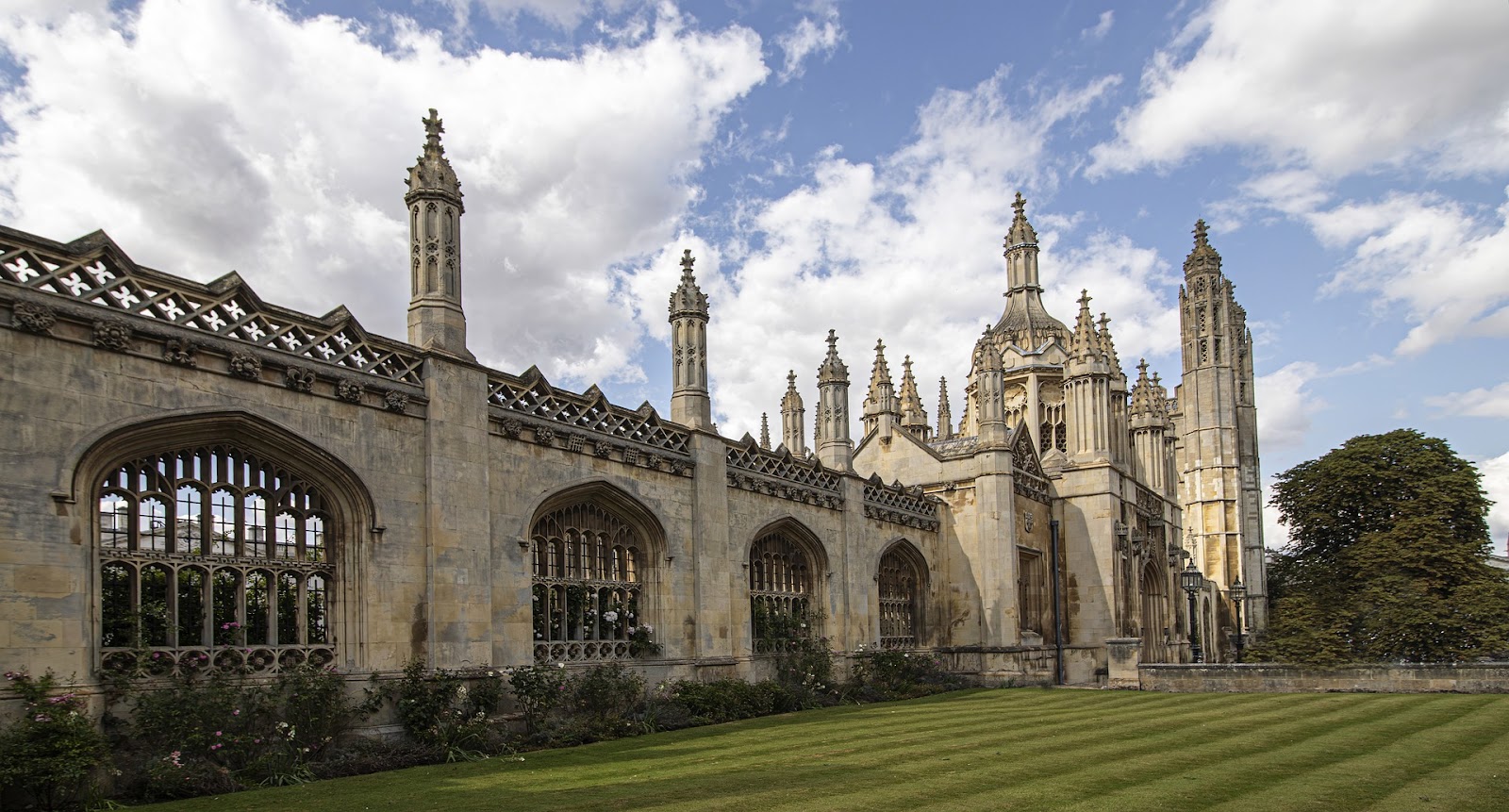Studying in England: opinions, fields of study, requirements, costs, after Brexit
So far, studies in England have been one of the most popular directions among Polish applicants who were thinking about going to study abroad. It’s not surprising as we can find the best universities in Europe there. England attracts applicants with its traditions, very high level of education and openness to students from abroad.

What is studying in England like?
Studies abroad England usually last 3 years at the undergraduate level (bachelor studies – BA), and one year at the graduate level (master studies – MA). During the studies, it is possible to go on a student exchange (sandwich year) or complete an internship at one of the companies cooperating with the university (industry placement year).
Studies in England abroad: Bachelor Degree
In the first year of studies, students have the opportunity to live in university dormitories. This is a year that you can spend on integrating with other students and finding your future roommate with whom you can rent an apartment.
When choosing your studies, you should pay attention to what title you will achieve after graduation. Titles indicate the way of learning and suggest what is emphasized during studies. For example, the BSc (Bachelor of Science) studies will have a very strong emphasis on practice, while the BA (Bachelor of Arts) is a theory-focused study.
At the undergraduate level, you can obtain the following degrees:
- Bachelor of Arts (BA) – usually studies in the humanities
- Bachelor of Science (BSc) – usually a science or deeply explored field of study
- Bachelor of Engineering (BEng) – engineering studies
- Bachelor of Laws (LLB) – legal studies
There may also be more specific degrees, such as a Bachelor of Education degree that prepares you to teach in schools.

Studies in England abroad: Master's degree
Master’s studies last one year in England. You obtain the same titles as in the bachelor’s degree: MA, MSc, MEng, LLM. This level of study is a very intense time of study and work. Within a year, you must master advanced, specialized material. Therefore, in England, few applicants choose a master’s degree immediately after obtaining a bachelor’s degree. Students prefer to try themselves on the labor market and determine which field they want to specialize in.
There are also master’s studies that require their potential students to gain work experience already. Such studies are, for example, the very popular MBA (Master of Business Administration). The best universities will ask a candidate to gain work experience before applying. An example of such a university is University College London, which requires candidates to have 7 years of work experience including two years in a managerial position. There are also universities that have less restrictive conditions.
The cost of master’s studies may vary depending on the university you choose.
The same goes for requirements and deadlines. In the first step, you must carefully consider the choice of the university where you want to study at the master’s level, and then carefully read their requirements.
Usually, universities pay attention to:
- your grade at the end of your bachelor studies,
- references from two academic teachers,
- English proficiency level and
- letter of motivation.
Masters degree abroad cost varies depending on the university and the course you choose. Tuition fees can range from around £15,000 to around £30,000.

Why is it worth studying in England?
You must have already heard from a friend, or a friend has heard from a friend, or … that’s right. Over the last 10 years, the number of Poles going to study in England has been constantly growing – according to the UCAS system (United Kingdom’s application system), since 2011 the number of applicants has at least doubled.

What do students who choose to study in England to study abroad usually point to?
Studying in England for Poles - what surprises us?
Practice over theory! Universities in England put the greatest emphasis on students completing their courses with practical knowledge supported by theoretical knowledge. Therefore, from the very beginning, lectures are combined with classes where this knowledge can be used. Students have a lot of classes in laboratories, workshops, workrooms or studios, e.g. TV studios, they work with modern tools, which is very important for future employers. This type of learning is called Project Based Study.
In addition, the huge emphasis is placed on teamwork. You can pass some of the classes not with an exam, but by working in a team of 3 – 5 people on a given project. It is not easy – it requires proper data collection, correlation of discussions and conclusions, putting it all together as a final work and finally making an efficient presentation of the results. In such project work, soft skills are very important – as a result, students already acquire the skills needed at work in the future.
For Poles, an additional surprise in studying in England is the attitude of lecturers towards students.
Many people confirm their accessibility and openness to students. Professors are ready to answer questions coming from the lecture room, and they often conduct lectures in the form of discussions with students. What is also helpful, all the materials are available to students in advance, so that they can prepare for the lecture more easily.
You can call your lecturer by name, and when the academic year is over, you may go for a beer in a pub. This openness makes studying a pleasure, not a necessity.
Another advantage of studying in England is the time students spend at the university.
On average, classes take 15 hours a week and usually are squeezed into 3 days a week, which means that students have time to study, work and also private life. During the free time, it is worth getting involved in numerous student organizations. And speaking of them…
There are Student Societies, i.e. student clubs. What are they? Students are a specific group that has time and willingness to act and implement their ideas. At universities you will find a club that will probably suit all the hobbies you can think of right now – are you a Lord of the Rings fan? Maybe you love drinking tea? You take the photos everywhere? Or maybe you want to get involved in political or engineering groups? Go ahead! If, however, there is no such club that would suit you yet – no problem, you can set it up.
And last but not least… Fields of study. Universities in England offer a very wide selection of courses in English (after all, you study in England!). What are the most popular majors? Keep on reading.

Study in England - Fields of study
There are over 50,000 courses in England, available at around 400 universities. Therefore, it is worth considering what and where we want to study. Some courses are more popular than others.
According to statistics conducted by UCAS (UK application system), the most popular fields of study in terms of the number of applications include:
- Economics
- Sport and Exercise Science
- Business and Administration
- Pre-Clinical Medicine
- Management Studies
- Design Studies
- Computer Science
- Law
- Psychology
- Nursing
To stand out from other candidates, you should make sure you prepared the highest quality documents. Recruiters require candidates to be sure that the decision on the selected course is well-considered. That is why it is worth getting acquainted with the study programs in advance, finding out what you will be learning throughout their duration and whether it will be interesting for you. Check it out on our EduCat Platform.
Check which fields of study you can study in England in our Field Finder
Medical studies in England
Medicine is one of the most popular and demanding fields of study available in England. The application is more complicated than in the other majors. What distinguishes medical studies?
- The application deadline is October 15 (in other universities it’s January 26).
- You are required to have experience in a medical facility (Even before you start your studies, so don’t wait with your preparations).
- Additional exam – depending on the selected university it may be UCAT or BMAT.
- Demanding on-campus interview.
In addition, you must have very good results in the final high-school examination, with a strong emphasis on science subjects passed at advanced levels or Higher Level in case of the IB international matura exam.
The application for medical studies in England is designed to check whether the candidate is the right person for such demanding studies. Recruiters check not only the level of your knowledge, but also your motivation to become a doctor, as well as empathy, which is very important in the doctor profession.
How long does medical studies take?
Medical studies abroad in England last 5 years. The study program at the universities is very similar and includes theory, but above all practice. That is why you will spend a lot of time in laboratories, dissecting rooms and on internships.
During the classes, great emphasis is placed on developing appropriate values among future doctors, teaching them the right approach to the patient and paying attention not only to their physical condition, but also to their mental needs. This material is implemented during Communication for Clinical Practice (CCP) classes, which are to prepare young doctors for the demanding world of practical medicine and appropriate contact with patients.

Graduate Entry Medicine
There is an alternative to standard medical studies in the UK. Namely, it is Graduate Entry Medicine. It is addressed to people who have completed bachelor’s studies in medical-related fields. Simply put, it is a Masters in Medicine.
Graduate Entry Medicine lasts 4 years. The application is done through the UCAS system. The required documents are:
- Personal Statement (covering letter),
- the best possible reference from an academic teacher,
- a grade on a bachelor’s diploma of at least 2.1 (it’s an equivalent of grade of 4.5 on a bachelor’s diploma in Poland),
- work experience and
- passed UCAT, BMAT or GAMSAT exam – the type of exam depends on the university.
Graduate Entry Medicine is offered at 14 medical schools in the UK, and each of them sets its own requirements. Think about your decision thoroughly before choosing a particular school.

Studies in England - studies without a high school diploma
Don’t you meet the requirements of the university you are interested in? Maybe you have verified your plans and haven’t got enough time to properly prepare for the exams? Or your English is not good enough to start studying in England? There is a solution to these questions.
Foundation Year is a year during which you can make up for the missing material at the university and then apply for a major that interests you.
You can stay at the university where you are doing the zero year or apply to a completely different one. You can also think about an application for bachelor studies combined with a zero year – then you have a guaranteed place at the university – of course, provided that you pass it with good grades 🙂
Foundation Year usually sets much lower requirements than “normal” majors, and some universities will even accept you without passing the exam.
Foundation Year includes general classes where you can learn the basics required for the 1st year of the studies you are interested in. This is a great option for people who previously did not care about grades or who simply did not pass high school exams.
If you are interested in studying medicine in England, don’t wait with the preparations. Start them now. The first step is to log in to our Platform and make an appointment with one of our mentors who will tell you about their studies and how they recall recruitment itself.
Study in England after Brexit
The departure of the UK from the European Union significantly complicated the arrival of Poles to study in England. What has changed?
Study in England after Brexit - Cost of tuition
The cost of tuition is one of the elements that significantly affect the decision of Poles to go to study abroad. So far, England has offered the possibility of taking out a government student loan, which covered the cost of tuition and was granted on favorable terms for students. Due to Brexit, from 2021/22, international tuition fees will apply to students from Poland, i.e. fees that have been applicable to students from outside the European Union.
In order to start studying, you are required to prove that you can afford to pay for your studies. As a student from Poland, you do not have to prove that you can afford to live.
Study in England after Brexit - student visa
The student visa requirement is one of the elements that students from Poland must take into account when choosing to study in England.
You can apply for a visa only after receiving an unconditional offer, i.e. only when you meet the conditions for admission by the university. To apply, you will need the Confirmation of Acceptance for Studies (CAS), a document that confirms your acceptance and contains all information about the cost of studies.
Before receiving the document, the university will ask you to pay a deposit or other form of assurance confirming that you are willing to start studies.
CAS also includes a confirmation of your English proficiency level. You do not need to pass additional exams to apply for a visa.
The whole application can be completed in the special app when you have a new passport with a chip that allows it to be scanned. This option is available only to residents of European Union countries. If you do not have such a document, you will have to go to a designated institution where you will submit your fingerprints.
Visa applications are usually processed within 3 weeks. You can apply for it no earlier than 6 months before the start of the course you have been admitted to. The cost of the visa is £348.
The visa is issued for a period of 5 years if you are going for undergraduate studies. Later, you can change your visa to another type (graduate visa issued for two years) or extend it if you plan to study longer.
The visa allows you to come to England no earlier than one month before the start of the studies and to work part-time (although this is also related to what your work will look like in the period between academic terms).
The visa application is a novelty for Poles going to Great Britain.
However, you have nothing to worry about. The university where you will be admitted will answer all your questions and guide you through the entire process.
Study in England after Brexit - insurance
Along with the visa, students are required to purchase health insurance. Its price varies depending on which course you applied for and how long the course lasts. A fee must be paid with the application if you are using a webform. Otherwise, you pay by traditional bank transfer before sending the documents.
You can check how much your insurance will cost on this page.
Study in England - Costs
Regarding the cost, studies in England should be considered in two ways:
- tuition costs, which have increased significantly since the UK left the European Union,
- everyday living costs.
These costs depend heavily on the university we choose (differences in the amount of tuition fees can be up to 40,000 pounds) and the place where we will study – the cost of living in London is definitely higher than in smaller towns in England or Scotland.
In addition to the daily costs of living in England, you should add fees related to the student visa and health insurance.
Find out more about the cost of living in the COSTS page.
Loan for studies in England withdrawn after Brexit
Before Great Britain left the European Union, students from the EU countries were treated as British students, which meant that they could count on all the privileges available to so-called home students.
Before Brexit, students from Europe were able to apply for a government loan that covered the cost of tuition. Unfortunately, it is now not possible to apply for a student loan that funded your studies unless you have settled status or pre-settled status
If you do not meet the above conditions, you are not eligible for a government loan to study in England, Scotland, Wales and Ireland.
Study in England - Requirements
Application for studies in England, as well as in the whole of Great Britain, is carried out through the UCAS system (Universities and Colleges Admissions Service). Only this system allows for submitting your entire application. What do I need to apply to study in England? Two documents must be attached to the application:
- Personal Statement, i.e. cover letter and
- Reference from the teacher.
The most important deadlines to remember in case of studying in England are:
- October 15, which is the date of application to the two best universities in Great Britain, i.e. the University of Oxford and the University of Cambridge. It is also the application deadline for medical studies in the UK.
- January 26, which is the deadline for equal treatment. It means that the universities will consider your application along with all others submitted before this deadline. If you send your application later, the university may reject your candidacy, even if you are a very strong candidate, they simply will not even look at it.
You’re probably wondering what exams you need to pass to get into university in England.
For most universities, it is enough to pass the Polish Matura exam with a maximum of three A levels (extended subjects). Since you will be studying in a foreign language, universities will also ask you to pass an English language exam. It can be an IELTS, TOEFL or other exam accepted by the university (some of them also take into account the result of the matura exam in English).
If you are taking the International Baccalaureate (IB), you should not be required to take an English exam.
More detailed information on how to get to study in England and the UCAS application system can be found in the ‘How to get?’ page.

Studying in England - Opinions
Studies are a time full of experience and wonderful moments. You’ve probably heard from your parents more than once that the study period is the best time of their lives.
And what do current students say about studying in England and what do they value most?
- International environment,
- professors with a practical approach,
- modern universities with equipment that prepares you for real work,
- organized student internships,
- and many others…
Application to study in England with EduCat
Have you read the article and want to apply to study in England? Do you have any questions about the application?
EduCat will help you with the application process to study in England. Our Mentors support students at various stages of preparing for the application – whether you need help with the application system, issues before going to university or the entire process from start to finish. You can use all the support in one place – on the EduCat platform.
In the meantime, write to us and we will try to answer all your questions and help you prepare for your studies abroad.

